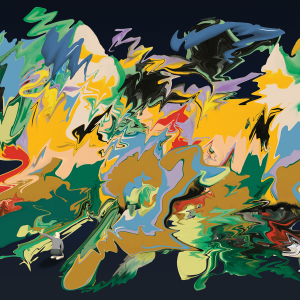
Julia Alvarez is the author of many books, including Afterlife, How the García Girls Lost Their Accents, and a picture book for young readers, Already a Butterfly: A Meditation Story.
Posts By This Author
Tips for the Wayward Meditator
You don’t even have to be good at it.
OFTEN, WITH MEDITATION, I’m reminded of many people’s reaction to poetry. “I don’t get it,” they say, a little embarrassed to be admitting this to a writer and a former English teacher.
The first thing I think is: You must have had a really lousy teacher who taught you that poetry is something you “get”—a message you extract for a good grade. Poetry-phobes might feel a bit more relaxed when I tell them that’s not how poetry works. Often, with my favorite poems, I never fully get them. All I know is that reading and rereading them, the mystery stirs inside me again. In her lovely poem “Self-Portrait with Religion and Poetry,” Kate Daniels describes what happens to her when she deeply connects with a work of art:
... I lie down in the silence
of my mind and touch the world all over.
Clouds fly through me. Trees break the sky
above a frozen lake, and a footprint
startles its crust of snow.
Then I can type another page, or nurse
my hungry infant. I can take from the cupboard
the bread and the wine, the eggplant and garlic
my hands will transform into sustenance.
‘We're All Here to Learn How to Die’
Julia Alvarez on (mis)understanding the spiritual practice of centering prayer.
I WAS GOING through a period of grieving when a friend in my St. Stephens’ family told me about a centering prayer/meditation group that met Thursday afternoons at the church. I had never heard the term “centering prayer,” but I had tried meditation a number of times. “I’m no good at that,” I explained, but her quiet kindness was persuasive. Hey, maybe there was something in it for me, too. I thought I’d give it a try.
As I attended more sessions and read more and more about centering prayer, I realized that my initial reaction revealed what was impeding growth. Being good at something, succeeding at it, was how the hardworking, achievement-oriented me had (mis)understood this spiritual practice. That hardy, eager little self—going also by the name of ego—had served me well to get to where I had gotten, but it was often a handicap in the territory I was beginning (cautiously) to enter with my Thursday afternoon group.
I recall at one point complaining, as little selves are wont to do, that I felt like a too-large Alice crammed into a small box when I meditated. I was right. My robust ego, with whom I was overly identified, would never make it through the narrow meditation door and into the beautiful garden. No wonder I had been baffled by phrases such as “Blessed are the poor in spirit.” Really? Wouldn’t Jesus want us to be rich in spirit? Poverty empties us for the hugeness of God. I had to let go.
Poetry: Not a Thief

Laborant / Shutterstock
They steal more than our cash who steal our money, dropped bills
slipped in a finder’s pocket, a wallet emptied of its fill;
they steal a kinder world where we look out for each other,
call to know: How did your date, or, surgery go?
'Unless Somebody Steps in to Help...'
As much as we'd prefer feel-good activism, the beatitudes pull us out of the comfort zone of the self that always wants to stop at having "done its part."
TO ENTER la fortaleza where Jhonny Rivas was being held prisoner, I had to hand over my passport and undergo a thorough search, which included squatting naked on top of a mirror laid on the floor. I wanted to turn around indignantly and go home. Instead I faced the two female guards, girls really, one with braces, the other with the acne of a teenager. Por favor, I appealed. They exchanged an unsure glance, no doubt worried about el capitán strutting outside, then gestured for me to put my clothes back on. At the door, I embraced them.
Blessed are those who don’t follow unrighteous rules, for they shall be hugged.
I confess that I often practice my own beatitudes lite. It’s where I often want to stop, at the easier, feel-good variety of activism. But the beatitudes are as morally rigorous as those daunting Ten Commandments, albeit working through positive reinforcement—blessings rather than “thou shalt nots.” If you truly embrace them, they keep pulling you further and further out of the comfort zone of the self that always wants to stop at having done its part.


